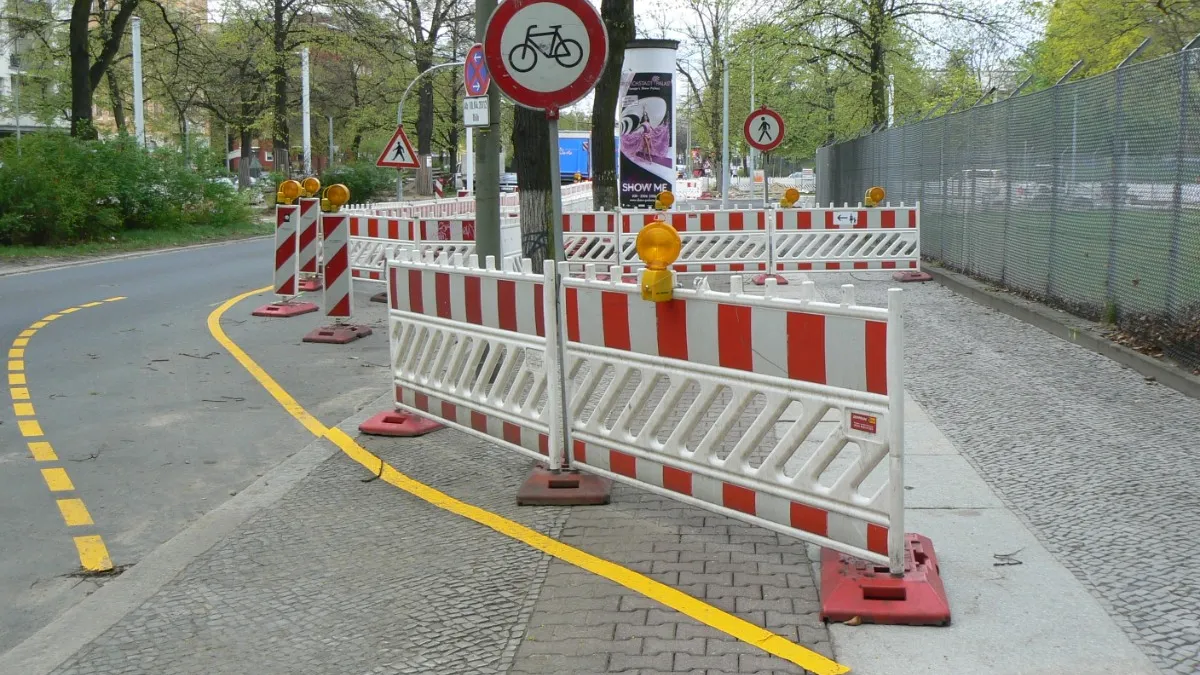Dive Brief:
- New Zealand is first country to fund "pop-up" solutions, or tactical urbanism projects, as part of government policy to improve cyclist and pedestrian safety amid the new coronavirus (COVID-19) pandemic, according to Forbes.
- Transportation Minister Julie Anne Genter has called on cities to apply for 90% funding to create more space for pedestrians and cyclists via wider sidewalks and temporary bike lanes.
- The support comes from the Innovating Streets for People pilot fund, according to the NZ Herald.
Dive Insight:
These types of solutions are an affordable "no brainer" for cities during the pandemic, Vishaan Chakrabarti, founder of the Practice for Architecture and Urbanism (PAU), told Smart Cities Dive. He said widening a sidewalk is "pretty straightforward," and for cities looking to re-purpose their streets during the pandemic, parking can be a good place to start.
If cities removed personal or private automobiles while still allowing for buses, ride-hailing, freight and other services, a huge amount of territory adjacent to our sidewalks could be taken over for bike lanes or widening sidewalks, he said.
These aren't expensive solutions, according to Chakrabarti, as it requires mostly concrete, a new curb and paint. "It’s extraordinary to think about the amount of space that's given to these rolling tin cans that sit empty all day," he said.
Replacing parking spaces for pedestrians or bikers has historically been met with a good deal of controversy and pushback from voters, Chakrabarti noted. He said a common misconception among some city officials or residents is that the only way to fix traffic is with more traffic lanes, but the practice of expanding roads or building new ones has proven to greatly increase congestion, according to a recent report from Transportation from America.
The pandemic has brought a new sense of urgency to creating biking and pedestrian safety solutions. Cyclist injuries in New York City increased 43% between March 9 and March 15 as mayor Bill de Blasio encouraged people to avoid crowds by biking, Streetsblog reported.
As a temporary solution in Oakland, CA, Mayor Libby Schaaf has moved to ban cars from 74 miles of the city's streets. "Given the emergency physical distancing requirement, coupled with fewer cars on our roads, we need to acknowledge that people will be outdoors for a little personal exercise, and our responsibility is to make sure that it happens in as safe a manner as possible," Councilmember Dan Kalb, chair of the city's Public Works Committee, said in a statement.
Boston, Minneapolis and Philadelphia are also testing out car-free streets during the pandemic to give pedestrians more room to move around safely, Grist reports. And in Bogota, Colombia, the city added nearly 72 miles of new bike routes to support social distancing and lessen congestion.
Looking ahead, city leaders should plan for ways to make some of these temporary solutions permanent. "We should be asking the question: When this is over, are we just going to return to our clogged, congested cities that we had prior to this?" Chakrabarti asked. "Or does this teach a lesson?"
CORRECTION: This story has been updated to reflect the proper name of the Practice for Architecture and Urbanism (PAU).
To keep up with all of our coverage on how the new coronavirus is impacting U.S. cities, visit our daily tracker.












